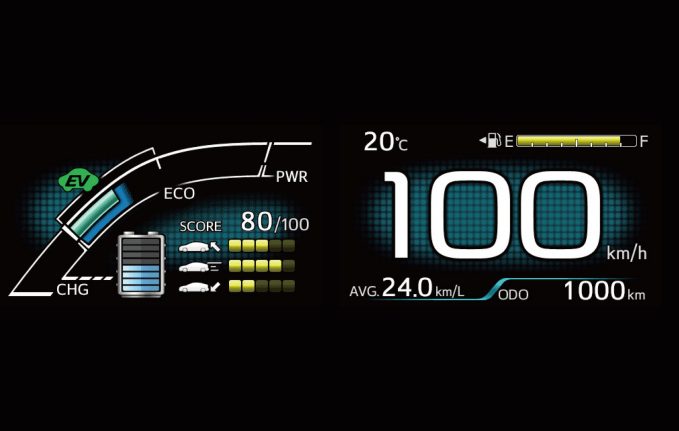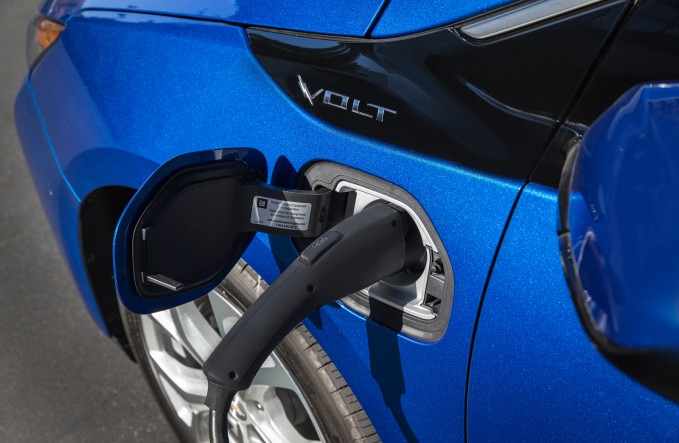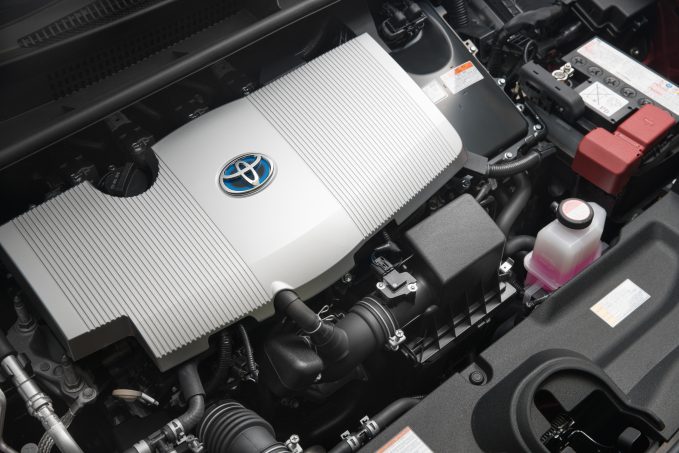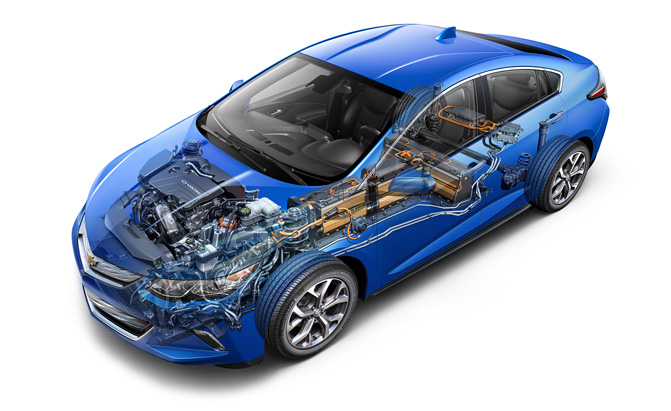Imagine how the auto industry was decades ago.
Automatic transmissions. Fuel injection. Remote door locks. Variable Valve Timing (VVT). These then-revolutionary technologies, after some years, have now become so commonplace that they’re no longer given much second thought. But back then, folks probably wondered: would these newfangled gizmos last for the long haul? Would they break down? Would they be reliable? Cause problems? How would they operate after years and miles of use? What would be the implications on resale value?
ALSO SEE: 2017 Toyota Prius Prime Review
Today, as automotive technology advances at ever-increasing rates, shopper skepticism is often leveled at the latest breed of voltage-powered vehicles — whether partially battery-powered like a hybrid or plug-in hybrid, or a fully battery-powered EV.
Batteries. Modules. Motors. Inverters. Hybrids and EVs are full of fancy tech that’s cutting edge, relatively new, and unproven to the vast majority of used car shoppers. Still, and although hybrid and EV sales remain a small fraction of new vehicle sales, more used models than ever are available.
SEE ALSO: Are Hybrids Reliable?
If you’re considering one, you’ll want to consider this list of pre-purchase checks and tips, below. Most can be applied to any vehicle that’s partially, or fully, battery powered.

Software Updates: Software updates are issued by manufacturers to optimize the performance of various vehicle systems at some point after the vehicle was manufactured. They usually focus on addressing safety-related problems, fixing issues with vehicle components or systems, or to enhance performance, efficiency, battery life, and more.
You’ll want to make sure the vehicle you’re considering has had all applicable software updates installed, by ensuring all service records are up to date, and that the model you’re considering has only ever been serviced at its dealer, where software updates are often applied as part of routine inspections or maintenance work.
PRO TIP: Software updates are typically free, quick-to-apply, and documented by a dealer-linked computer network. Checking a used ride to see if any software updates are outstanding can be as simple as providing the VIN of the vehicle in question to the service advisor at any dealership.
Nissan Canada’s Quality Assurance Department comments about software updates, particularly around the brand’s popular EV model, the Leaf.
“Software system updates for Leaf, which are issued through service bulletins, are just as important as they are for other vehicles. A dealership can check to confirm if a vehicle has all the software updates applicable to that vehicle, and to perform an update.”

Check the Charging Gear: It’s easy to overlook, but our research into used EV’s and plug-in hybrids has yielded the following advice: check the charge cord, and any associated implements carefully, for signs of damage and excessive wear. Note that a damaged charge cord can be a safety hazard, or even start a fire, and that even a small rip or tear in the cord’s rubber insulation can quickly become a big one. Built-in safety provisions within the charging system may unexpectedly cut power to your EV’s battery should there be a short, or buildup of heat, which could leave you stranded.
Further, as owners across numerous brands and models have reported issues with electronic charge-door release latches, you’ll want to make sure that that’s working properly, too. If it’s not, a bad electronic switch inside the vehicle is a great place to start investigating.

Check the Standard Battery: In hybrid cars, the big battery gets all the attention, since it forms the core of the hybrid drive system. But many hybrids have a conventional 12-volt battery and charging system, too, like most other cars, and it may need some attention. Hybrid cars are designed to keep the running of their gasoline engines to a minimum — an issue at times, since the alternator, driven by that gasoline engine, is what charges the smaller 12-volt battery. As a result, in some situations, the hybrid’s 12-volt battery (which starts the engine and powers numerous complicated accessories), can become drained — causing trouble starting the engine, or sporadic and improper operation of numerous other systems. Have the conventional battery and charging system of any used hybrid you’re considering inspected, for maximum peace of mind.
ALSO SEE: What Does the Smoke from My Exhaust Mean?
PRO TIP: A mechanic can inspect the health of your hybrid’s 12-volt battery and charging system in mere minutes. Note that since modern car electronics can be extremely fussy about having the proper amount of voltage, and that since a low battery charge is a key cause of frustrating and random electronic issues, a trickle-charger is a great idea for your hybrid. This is especially true if it’ll be used for frequent in-town trips, where the engine will spend minimal time running to charge things up.

Check the Hybrid or EV Battery: Depending on the model in question, a dealer technician with special hybrid training and diagnostic equipment may be able to perform a test on the hybrid or EV battery, to ascertain its overall health, and to reveal any problems.
Some automakers can perform this sort of test, others can’t.
A Ford spokesperson explains: “We have no specific test to determining battery lifespan, but the vehicle has a battery monitor that indicates state of charge, and calculated driving range. Further, internal modules maintain the battery voltage during charge, to optimize performance. If there are system issues, warning indicators or codes are set, because proper operating parameters haven’t been met. These indicate a problem, and a technician can check for these trouble signs by connecting special diagnostic equipment to the vehicle.”
Conversely, Nissan has an EV Battery Usage Report, which owners of the Nissan Leaf EV are expected to have performed by their dealer annually, to keep as part of their maintenance records.
A Nissan Quality Assurance representative explains: “Nissan Leaf certified dealership technicians are capable of performing an EV Battery Usage Report. A shopper considering a used Leaf model can have this test performed ahead of their purchase at a dealer, if required, too.”
Nissan’s EV Battery Usage Report checks on numerous factors that may have positive or negative effects on the long-term life of the battery, and gives the battery a capacity rating.
Again — this sort of battery testing varies in its complexity and availability from model to model, so be sure to contact the appropriate dealer for the full scoop.
PRO TIP: Another point that illustrates the importance of having only a certified dealer work on, or inspect, your used hybrid or EV? Safety. Improperly executed repairs or part replacements can have adverse effects on the health of the vehicle’s electronics system, or even, its safety.
Our Ford spokesperson adds, “It is always important to have a used Ford Hybrid or EV vehicle inspected by a Ford dealership. Technicians are trained on the safety and repairs to the high-voltage systems, and able to detect any problems.”
Get it Scanned: In mere minutes, a technician can open a window deep into the inner workings of your potential hybrid or EV’s array of complex electronic systems. Using a special tool or scanner to pull up information on various components, and to run various tests, your potential used green-car candidate can be validated for trouble-free operation of its electronics network, potentially revealing issues you, or even the seller, isn’t aware of. This sort of test is typically inexpensive or even free, and can be completed quickly.
PROTIP: A dealer trained technician is the best person to carry out this sort of scan on a specialized vehicle like a hybrid or EV. Due to the complicated nature of hybrid and EV cars, and their advanced electronic systems, shoppers are advised to avoid plugging their own code reader or scanner into a hybrid or EV.
It’s Still a Car: Hybrid and EV cars are very different from regular cars, but they’re also very similar. They have brakes, suspensions, climate control systems, tires, transmissions and even engines and fluids, in some cases, that all require periodic attention and maintenance, just like any other car. As such, when focusing on pre-purchase checks and inspections, be sure to have a mechanic check the entire vehicle, and all of its systems, and not just those relating to the hybrid or EV system.
PROTIP: Most hybrid cars have more advanced and complicated cooling systems than standard cars, with additional pumps, cooling circuits and plumbing used to cool hybrid-related components like the inverter or battery pack. As such, a careful, professional inspection for cooling system leaks is extra important.



Leave a Reply